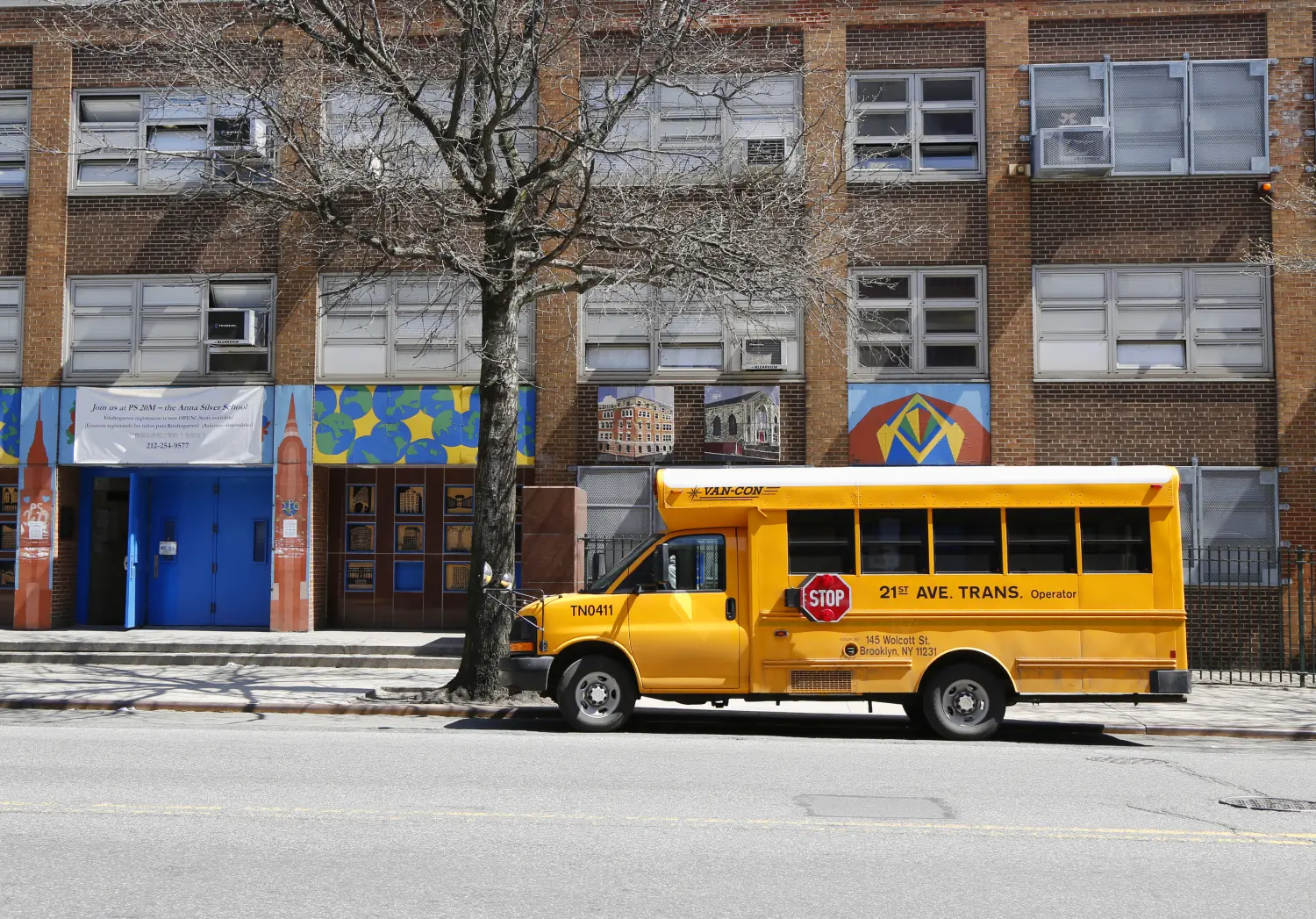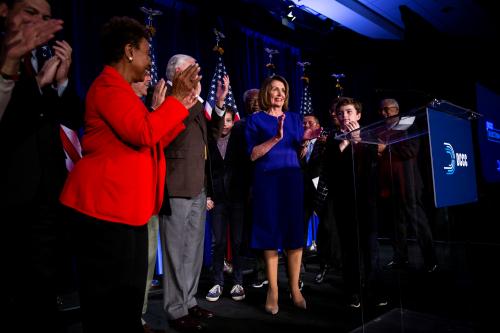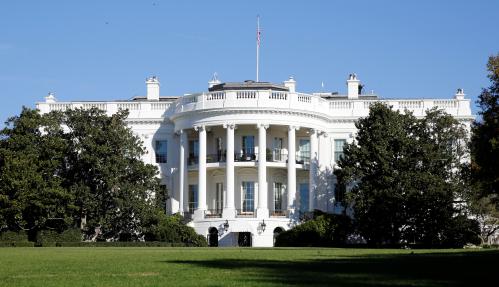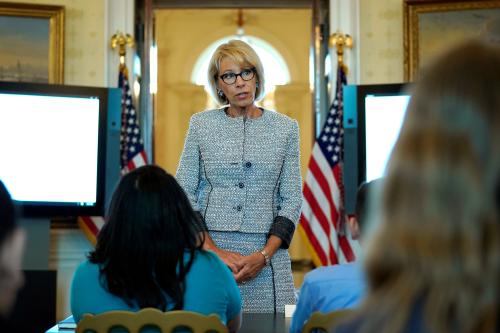As kids across America head back to school, compelling story lines in the education policy world are playing out with massive implications for students, educators, and parents. From school safety, to the midterm elections in November, to the possibility of more teacher strikes, there will be a lot of important developments to monitor over the coming months. To sort through it all, Brown Center scholars each highlighted—in their own words—what they’ll be watching for in U.S. education during the 2018-19 academic year.
I’ll be paying close attention to the midterm elections for two reasons. First, if education plays a bigger role than usual in midterm campaigns given opposition to Education Secretary Betsy DeVos, Democratic and Republican candidates alike may end up saying more than usual about where they stand on various education issues. These campaign commitments could have consequences for what voters expect of those who win office, and in turn, for the issues that end up on the education agenda.
Second, I’ll be interested to see how DeVos’s agenda progresses in the wake of the 2018 midterm elections. If Democrats win the majority in the House or Senate, it seems likely that they would scrutinize DeVos’s proposed changes to Obama-era regulations related to the for-profit college industry. High-profile hearings on these issues could complicate the department’s efforts to roll back these regulations. Democratic control of either chamber could also mean that DeVos is called in to testify on other issues mentioned by my colleagues, including school discipline and school safety. If Republicans continue to control both chambers of Congress, DeVos likely has less to worry about in terms of public hearings on controversial issues.
Here in Washington, I’ll be watching two issues—gun violence and student discipline—and looking to see if they collide. Betsy DeVos is chairing the Federal Commission on School Safety, working alongside Attorney General Jeff Sessions, Secretary of Homeland Security Kirstjen Nielsen, and Secretary of Health and Human Services Alex Azar. The commission is tasked with issuing recommendations this year to improve student safety amid a wave of school shootings. It has, absurdly, steered clear of the topic of gun control, focusing instead on a slew of topics that includes school resource officers, active shooter trainings, and the design of school buildings. DeVos could use the commission to address another item on her to-do list: figuring out what to do with Obama-era guidance for schools to address racial discipline disparities. That issue has touched nerves across the country. Some Republicans have sought to connect school shootings to the guidance (and less punitive forms of student discipline), raising the possibility that DeVos might include rescinding the guidance among the commission’s recommendations.
As school starts up again, I’ll be closely watching for any new developments in the teacher strikes and protests that started last spring. This story began with a nine-day strike in West Virginia this February and eventually boiled over last spring to strikes and protests over pay, pensions, and education spending across a number of states including Arizona, Colorado, Kentucky, North Carolina, and Oklahoma. Though summer break lowered the heat for states and districts, agitations are picking up once again now that school is back in session across the country. Interestingly, many of these reports are coming from states that did not see major actions earlier this year, including district-level actions in Washington state, California, and a teacher-led hunger strike in Georgia. Public opinion appears to be favoring teachers currently, though the Supreme Court’s Janus decision this summer could have some effects that make organizing a challenge for teachers moving forward.
In the coming months, I will be paying attention to the Trump administration’s efforts to deregulate higher education. I have particular concerns about the proposed elimination of the Gainful Employment regulation that would remove the threat of federal student aid loss for poorly performing programs in for-profit colleges. I will also be following the administration’s movements toward loosening requirements for accrediting agencies and changing rules regarding state authorization, credit-hours, and online education. These changes could have dramatic impacts on the market for higher education, potentially resulting in many more students attending high-cost, low-quality programs in for-profit colleges.
Let’s hope this is the year that education policymakers finally acknowledge that there is more to schooling than student achievement as measured by student test scores. We look to schools to teach far more than the cognitive skills that standardized tests purport to measure. As a tool for talking about a broader set of valued outcomes, my co-authors and I have introduced the term “educational goods,” which we define as the knowledge, skills, attitudes, and dispositions that will enable individuals to flourish as adults and also to contribute to the flourishing of others.
In order to flourish, adults need the capacities to function in the labor market, to participate effectively in the democratic process, to make autonomous decisions, to seek personal fulfilment, to develop healthy interpersonal relationships, and to treat others with respect and dignity. If this new concept of educational goods replaces the current narrow focus on student achievement, educational decisionmakers at all levels–state and federal officials, district or school leaders or teachers in individual classrooms–will have the language to make thoughtful trade-offs among the broad set of valued outcomes that we seek and deserve from the educational process.
As children are going back to school, let us pay more attention to the quality, not just the quantity, of education the students receive. Standardized test scores are important, but the safety of the school environment where children spend 7-8 hours a day is much more important. In this context, parents should not hesitate to get involved in their children’s schools. This can be done by parents beginning to work constructively with classroom teachers and school administrators to ensure local schools are safe for their children. Parents, as community members, could also play a significant role in shaping and reshaping policies that promote school safety at the school board, county, state, and national levels. A safe school environment would not only help improve the quality of education children receive but also contribute towards desirable educational outcomes.
The midterm elections will determine party control of Congress and set the stage for the 2020 presidential election. All of that will have important effects on a range of policy issues—regulation and accountability, free college, and school choice, to name a few. Also, I’ll be curious to see how schools and colleges respond to current federal deregulation. It would be reasonable to view the current regime and approach as a temporary blip. At the “street level,” school and college leaders may continue doing things that they’ve always done, even if they’re not required to anymore.
The Brookings Institution is committed to quality, independence, and impact.
We are supported by a diverse array of funders. In line with our values and policies, each Brookings publication represents the sole views of its author(s).






